The sun shines a little less every day, and temperatures start dropping. Leaves begin showing brilliant reds and yellows before losing their grip on tree branches and plummeting to their final resting place on the ground. Summer is preparing for hibernation, while Old Man Winter is starting to wake up. Nature is getting geared up for the chilly months ahead, right? Heating your shop is essential for staying productive, so let us help you find the right heater.
Read About Choosing BTU • Read About Heating Types • Read About Fuel Types • Read About Heater Safety Features • Read About Propane Tank Size
Choosing A BTU
Okay, first things first. You should know what you need before you get your heart set on one specific model. A heater that is too big or too small will not do you much good.
The warming ability of a heater is measured in British Thermal Units or BTU. The higher the BTUs of a unit, the greater its ability to warm your shop. There is a broad range of heater BTU sizes to cater to needs, large and small. The formula to find BTU is:
- Cubic Feet Of Space x Temperature Difference (Fahrenheit) x 0.133 = BTU Needed
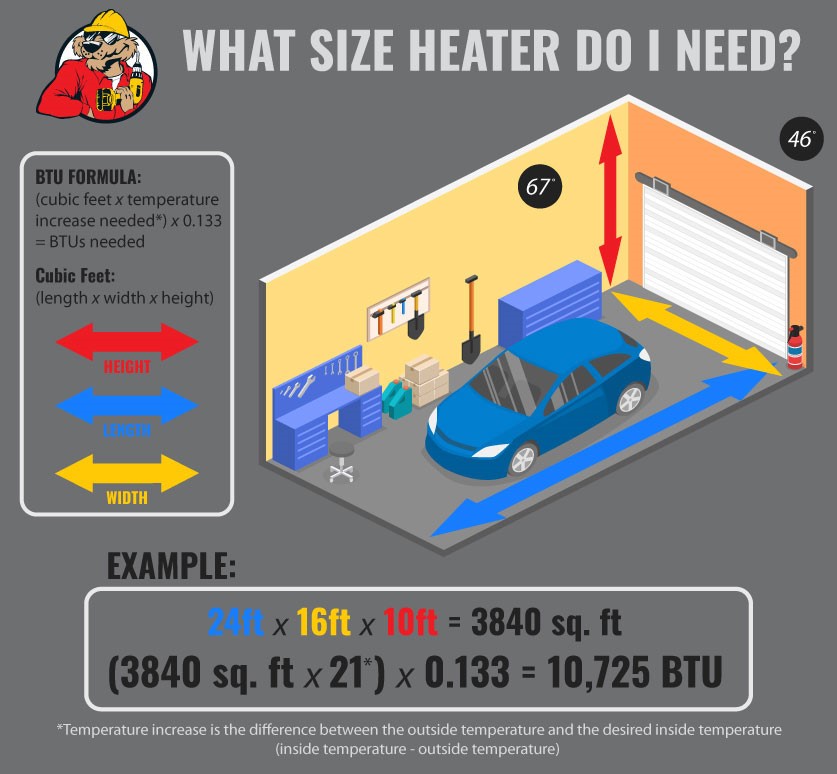
Heating Types
Forced Air
Forced air heaters, sometimes called torpedo heaters, use a fan to circulate warm air through your space. Like a small jet engine, they draw air in through the back and, using powerful motors, pass the air through a cylinder with heating elements inside. This newly heated air is shot out the front, creating warm convection currents.
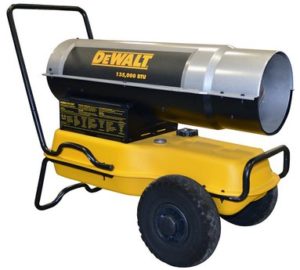
- Many fuels available
- Fast heating
- High BTUs, great for large areas
- Many are wheel mounted, easy to move
- Ductable
Infrared / Radiant
Infrared and radiant heaters provide direct warmth using infrared rays. The radiation is created differently depending on the heater, such as electricity or combustion. Infrared light can heat not only the air but also objects. While not as fast as forced air units, they are much quieter. These small electric models pose less fire risk without any flame than other types.
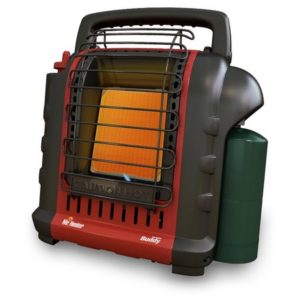
- Great for indoor use
- Quiet operation
- Heats air and objects, good for spot heating
- Produces heat immediately
- Variety of fuels available
- Small and portable
Mounted / Overhead
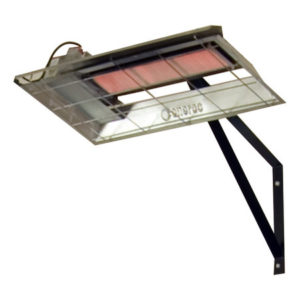
Many professionals like using overhead-mounted heaters to provide warmth in their workspace. You will have extra floor room by keeping it bolted to a wall or on the ceiling, which is especially handy in ultra space-efficient shops.
- Variety of fuels available
- Off the floor and out of your way
- Good for heating large or small spaces
- Simple to use
- Overhead heat
Convection
Convection space heaters use convection to heat entire rooms quickly and evenly. They typically burn propane with vents on the top and bottom. The heat naturally creates air currents, circulating the warmth in your space.
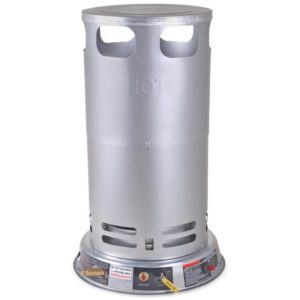
- No electricity needed
- Quiet operation
- Low fuel consumption
- Heats large areas
- Great for workers on sites
- Collapsible and easy to transport
Choose A Fuel Type
Liquid Propane
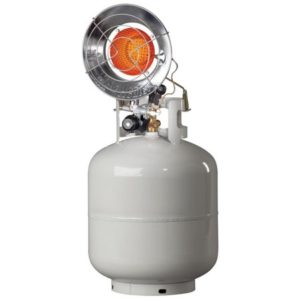
Liquid propane (LP) is a popular fuel for garage and workshop heaters. Many Americans commonly use it to heat their houses in the winter and power gas stoves and ovens. If you already use a bulk propane tank, using the gas to heat a garage, shop, shed, or any other area is a natural next step.
Of course, as with any fuel-burning appliance, be sure the area is well-ventilated to prevent a dangerous buildup of carbon monoxide.
Advantages
- Burns Clean
- Portable
- Wide Variety of tank sizes (1-pound disposable all the way to in-ground tanks)
- Safe for indoor use
- Fuel stores indefinitely
Do you have a propane tank that is big enough for your heater? Read about choosing the right tank size.
Natural Gas
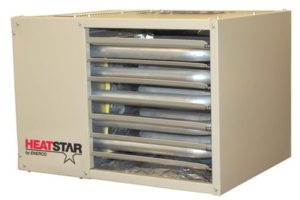
Natural gas (NG) heaters are like LP models but attach to your utility gas lines instead. LP and NG have many similar advantages. They burn clean, do not produce smelly fumes, and do not draw electricity like an electric heater would. You are already paying for the gas, so why not use it?
Advantages
- Inexpensive
- Burns Clean
- Never runs out of fuel
- Attaches to your existing gas lines
- Safe to use inside
- No extra gas tank
Kerosene
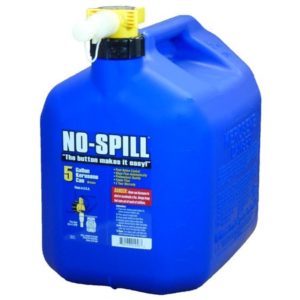
Kerosene is a fuel commonly used in camping lanterns and lamps, and it is another excellent option for heating. As a fuel, it is very stable, safe to use, and remains usable for a long time. Burning kerosene produces a distinct odor; some might find it unpleasant. Be cautious when choosing where you put your heater.
Advantages
- Stable, safe fuel
- Some units can burn jet or diesel fuel
- Self-contained fuel tanks, easy to move
- Very high BTU density
- Good for vast areas
Electric
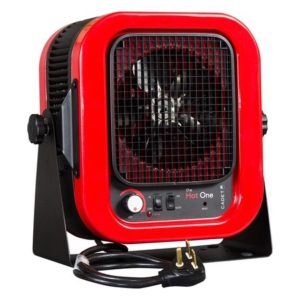
Electric heaters are small, lightweight, and do not use any flammable fuel. They are an excellent choice if you need to heat indoors since there is no risk of carbon monoxide. Keep those windows closed and keep drafts out.
Be aware some electric heaters require 240-volt outlets. They draw much higher wattages than standard appliances, so ask your electrician to be sure you have a proper setup before buying.
Advantages
- No flame or exhaust fumes
- Doesn’t affect moisture levels for sensitive projects
- Small and portable
- No fuel required
- Quiet operation
- Perfect for indoor use
- Many sizes available
Diesel
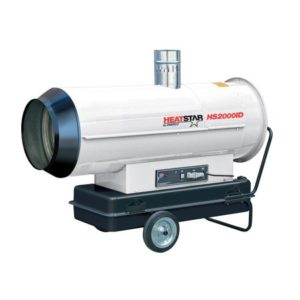
While some kerosene-fired heaters can burn diesel, resolute diesel units exist. Diesel-only heaters are large and only built for commercial applications, like construction sites. Some are even mounted on trailers for easy transportation by rental users. They produce tremendous volumes of heat but also cost more than other heater types.
Advantages
- Lots of heat
- Trailer-mounted, portable
- Ductable heat for large sites
- Good for construction and other commercial users
Other Features To Consider
Tip Protection
Heaters work great if they stay upright. Many modern heaters have safety triggers that shut the unit off if it is knocked over. You should never keep flammable materials near an open flame, but when an accident happens, you will be glad your heater was smart enough to extinguish itself.
Overheat Protection
Overheating can destroy a heater, making it unsafe to use. While looking at heaters for your space, be sure that they have built-in protection against getting too hot during use.
Ducting/Venting
Some heaters have ducting available to send warm air inside while keeping the heater outside. If you are worried about exhaust fumes getting into your space, ducting keeps the combustion at a safe distance without leaving you cold. Ducting requires a method to move the air, so they are exclusive to forced-air-type models.
Insulation
The insulation of the heater that is. Naturally, most heaters get hot to the touch after being on for a long time. Some units are insulated, so you will not burn or accidentally bump yourself while carrying it around.
Physical Size
In your already-cramped shop, you do not want a big heater hogging even more real estate. Small heaters or wall-mounted models will save precious floor space once you determine the heating power you need.
Wheels
Some heaters are big and complex to move around. Wheel mounts make it simple to relocate a heater in your shop if you need heat in a more specific place.
See all Heating Accessories
The Right Propane Tank
Propane forced-air heaters need different tanks depending on the BTU output. And while a small heater can use a big tank, a big one will not work well with a small one.
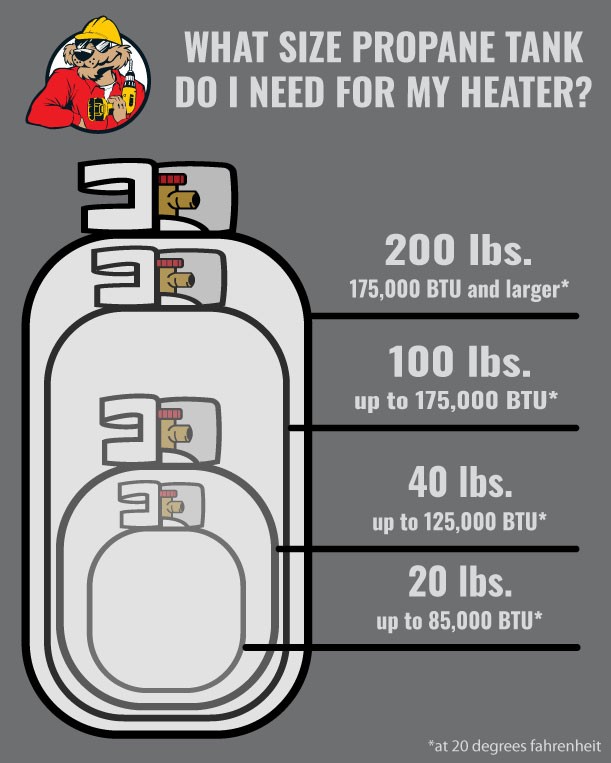


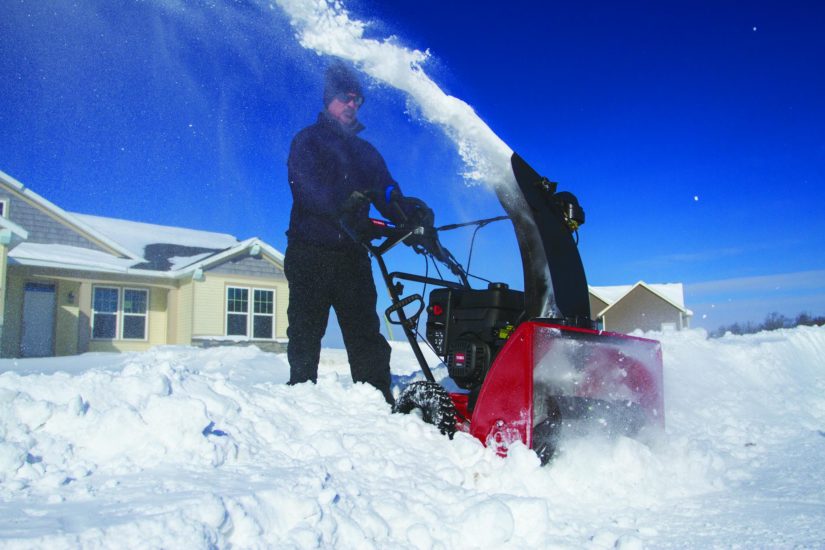


6 Comments
Amy Winters
August 13, 2019 at 6:50 pmThank you for pointing out that there are forced air heaters that are good for workshop spaces. My dad just had an outdoor workshop built and chose not to put central air or heating in the building. It’s good to know that they draw air in through the back using powerful motors, then pass the air through a cylinder that has heating elements inside.
Shaylee Packer
November 11, 2019 at 7:52 amI like the fact that that first heater listed is heavy duty and heats things up fast, but it is also on wheels so it would be easy to move from room to room. Being able to have each work space warm in the winter is essential. I will have to do some further research on this heater.
Ellie Davis
April 2, 2020 at 1:19 pmIt’s interesting to know that a propane heater will not need electricity to work. My husband and I are thinking about building a workshop in our backyard, and we are looking for advice about what to do. I will let him know about your recommendations to choose the right heater for his workshop.
Michael Pearson
September 3, 2020 at 8:03 pmWhatever you do, do not use heaters powered by propane and similar, in a woodworking shop. Not only the risk of setting off an incident when sawdust comes into contact with flame but these type of heaters produce moisture. Start thinking of mildew and mold on wooden surfaces and / or drywall surfaces once they get damp.
Trish
November 22, 2020 at 9:27 pmTwo things you ace with this post: calculating how large an area you want to heat so you’ll know what size heater to purchase and ending with tank sizes! Both are such a help but especially tank size information. I grew up with the unvented gas stoves (that usually ran on propane) in every room and looking back they were very dangerous, glad those days are behind us! Thanks!
Bradley
February 17, 2022 at 9:33 amNice article, but there is a problem with units in your formula. Length x width = Square Feet. Multiplying by height gives you cubic feet. ft^3.